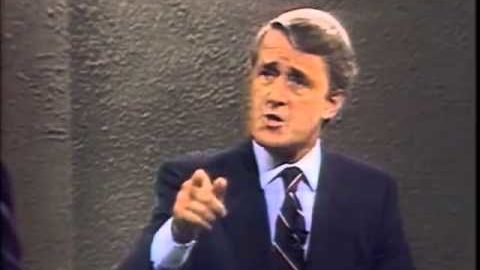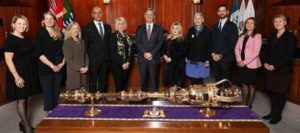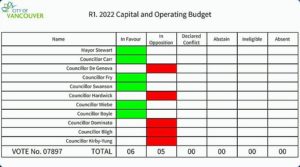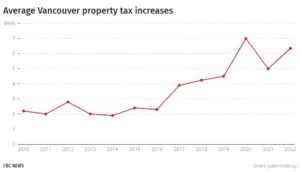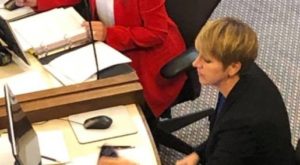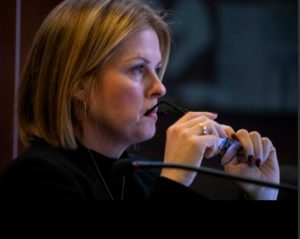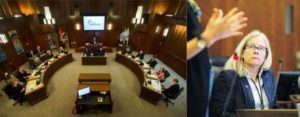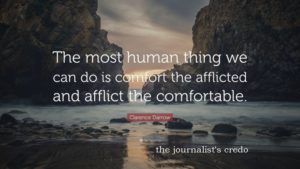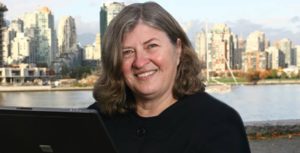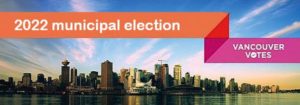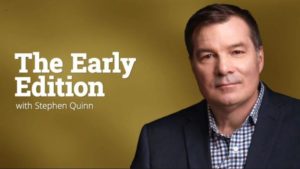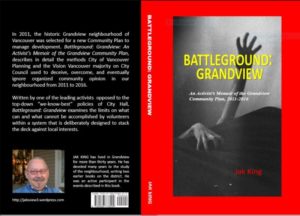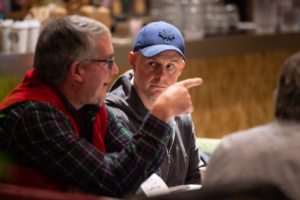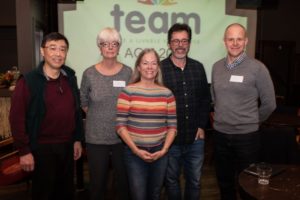
In a disparaging VanRamblings story published last week on this site — titled Vancouver City Council To Raise Property Taxes a Whopping 6.35% — we took Vancouver City Councillors to task for raising property taxes in our city beyond what most homeowners, small businesses, and landlords could reasonably afford.
Now, as it happens, VanRamblings is a big fan of taxes which, in good measure, pay for: our schools, from kindergarten through university post-graduate work; roads, highways, bridges and other transportation infrastructure (including public transit); our judicial and public safety systems (the courts, police, fire firefighters, paramedics, prisons); ‘social programmes’ including all aspects of child care (encompassing children in the care of the province, when family structures have broken down); all aspects of our vibrant health care system; and much, much more.
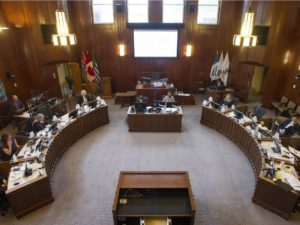
To be fair to Vancouver Mayor Kennedy Stewart, and the five Vancouver City Councillors who voted in favour of the 6.35% property tax increase in 2022 — that would be the three Green Party of Vancouver City Councillors, Pete Fry, Adriane Carr and Michael Wiebe, OneCity Vancouver’s Christine Boyle and COPE’s Jean Swanson — as is our wont, today we’ll publish one of our infrequent “history lessons” to explain, at least in part, the rationale as to why the Mayor and five City Councillors cast their vote in favour of a 6.35% property tax increase for 2022.
In 1984, Conservative Party leader Brian Mulroney was elected as Canada’s 18th Prime Minister, supplanting a Liberal Party of Canada that had been in power for 21 consecutive years, Canada’s 33rd Parliament in the autumn of 1984 consisting of 202 Tories, 135 Liberals, and 31 New Democrats. During Mr. Mulroney’s nine years in power, his government had many successes, on the environment and on the trade front, negotiating a groundbreaking free trade agreement with the United States. Contrary to billing, more often than not, Conservatives in power tend to be spendthrifts, all while cutting taxes for corporations and the wealthy, and failing to keep an eye on the federal budget.
In the midst of a deepening recession, when Mr. Mulroney stepped down as Prime Minister of Canada on Friday June 25, 1993, apart from and in spite of the then wildly unpopular 7% Goods and Sales Tax (GST) his government had brought in, Mr. Mulroney left his successor, Kim Campbell, with the legacy of a multi-year $42 billion annual budget deficit — a grim sum absolutely unheard of in those days.
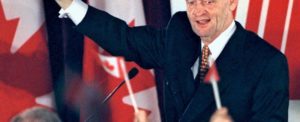
Only four short months later, on Monday, October 25th, 1993 Joseph Jacques Jean Chrétien was elected as Canada’s 20th Prime Minister. First order of business? Appoint a Finance Minister, and commit to not only eliminating the egregious annual deficit, but cut the accumulated $840 billion long term Mulroney legacy debt in half. Who would perform that masterful fiscal feat? The head of Canada Steamship Lines, from 1988 forward the Member of Parliament for the southwestern Montréal riding of LaSalle-Émard, and Prime Ministerial aspirant, Paul Martin.
In Canada, long ago the federal government negotiated what became known colloquially as a tax rental agreement with the provinces. The federal government would collect income taxes from Canadians, take a portion for federal coffers, while transferring the majority of the federal tax income collected back to the provinces. For years, back to 1945, the agreement worked well for all levels of government — until 1996, when Finance Minister Paul Martin “changed the game”.
In the 1995 federal budget Jean Chrétien’s Liberal government abandoned any pretense of federal financing of post-secondary education, changing what was known as the Canada Social Transfer into the renamed the Canada Health and Social Transfer(CHST), cutting a total of $3.5 billion in the CHST for the 1996/97 fiscal year. The total cuts to the provinces in the first five years Jean Chrétien was in power: $7.6 billion in transfer payments that would otherwise have gone to the provinces, or a devastating decline of 40.7% in health, education and other transfer payments to the provinces by the 1999-2000 federal fiscal year.
All of a sudden, the provinces were made almost entirely responsible for the largest provincial budget item: health care, and entirely responsible for funding post-secondary education, federally-funded programmes that had been in place since as far back as the end of World War II.
The good news for the federal government: by 2003 federal Liberal Finance Minister Paul Martin had not only eliminated any notion of an annual federal budget deficit — instead, creating a yearly surplus — but had, as well, paid down $440 billion in long term debt, cutting the federal debt in half as Jean Chrétien had promised a decade earlier. The bad news for the provinces: provincial Premiers and their Finance Ministers had to come up with funds to make up for the lost / eliminated “tax rental agreement” revenue that funded provincial programmes.
Provincial governments made up for the lost federal revenue by creating, or dramatically raising, provincial sales taxes, instituting or raising fees for every imaginable service, from driver’s licenses to camp ground fees, along with instituting bridge and road tolls while looking to any other sources of revenue provincial Finance Ministers could come up with to make up for lost federal funding.
The major source of newfound provincial revenue: municipalities. If the federal government had download responsibility to the provinces for health care, housing, and post secondary education, provinces sought to gain revenue from the towns, villages and cities that filled the landscape of their provinces. All of a sudden, cities, towns and villages were almost entirely responsible for the provision of affordable and social housing, social programmes, child care, road construction and maintenance, and other infrastructure (sewers, provision of clean water), and any number of programmes previously almost the sole responsibility of the provinces.
Where senior levels of government may run deficit budgets, cities, towns and villages, school boards, and Vancouver’s Park Board are required to run an annual balanced budget. With responsibility for programmes previously funded by the province now the responsibility of municipalities, cities, town and villages scrambled to find the required revenue, which translated into: skyrocketing parking rates and extended paid parking hours, dramatically increased parking fines, and skyrocketing development permit fees for homeowners and developers alike — and, what is known as Community Amenity Contributions by developers paid to the city to fund child care centres, neighbourhood recreation centres, as well as social and affordable housing, and a variety of arts and other programmes.
#VanBudget2022 was a balancing act, finding savings while funding critical investments to make life better for residents today and into the future.
Here are the promises that a majority of Council voted to fund. Followed by a ??debunking some of the spin. #VanPoli pic.twitter.com/ButY6EhkTG
— Christine Boyle (@christineeboyle) December 8, 2021
Here, then — as may be seen in Councillor Boyle’s tweet above — was the dilemma faced by Mayor Kennedy Stewart and our City Councillors when, last week, together our elected civic leaders voted for a 6.35% property tax increase for 2022, to fund not just core programmes, but the programmes that determine the livability of our city, and also fulfill the election commitments made by the Mayor, the three Green Party City Councillors, and our OneCity and COPE Councillors. Last week, for Mayor Stewart and five of our Councillors, conscience won out over fiscal restraint.
BUDGET: On equity vs austerity
“This is where we have to make hard decisions and make appropriate decisions for some of the most vulnerable people in our city, and for needs in our city that maybe not always get reflected in the thoughts of the majority,” https://t.co/iW7vbAhjRW— Pete Fry (@PtFry) December 8, 2021
